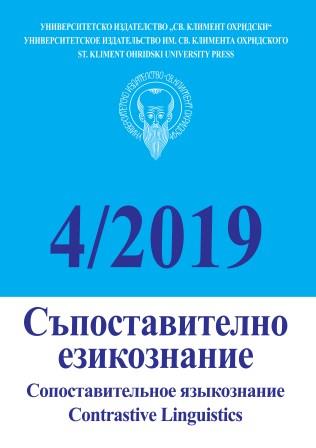End and finality. On Slavic units derived from compositions with the nouns koniec, край, конец
End and finality. On Slavic units derived from compositions with the nouns koniec, край, конец
Author(s): Anna KisielSubject(s): Language studies, Language and Literature Studies, Theoretical Linguistics, Philology, Translation Studies
Published by: Софийски университет »Св. Климент Охридски«
Keywords: non-referential meaning; multiword expressions; discourse markers; adverb; Slavic languages
Summary/Abstract: This article presents a case study in the field of interlingual analysis of units with nonreferential meaning, with special focus on Slavic languages. The units analysed are a) based on finality nouns, b) (almost) identical in form and c) similar in meaning but not in usage. By examining grammaticalized expressions derived from compositions with Polish nouns koniec ‘end’, ostateczność ‘finality’ and their Bulgarian and Russian equivalents, we address the problem of the non-overlapping nature of non-referential units in various languages. Regardless of any similarity in respect to how such units are formed, it is rare for two (or more) languages to have semantically and functionally identical equivalents. Also, as regards categorizing such units into subgroups based on meaning or function, it is uncommon for these subgroups to consist of identical elements in various languages. The data collected support the opposite hypothesis: the non-referential layer of lexis is structured differently in various languages and only some elements have semantic or functional equivalents in other languages.
Journal: Съпоставително езикознание / Сопоставительное языкознание
- Issue Year: 2019
- Issue No: 4
- Page Range: 5-24
- Page Count: 20
- Language: English
- Content File-PDF

